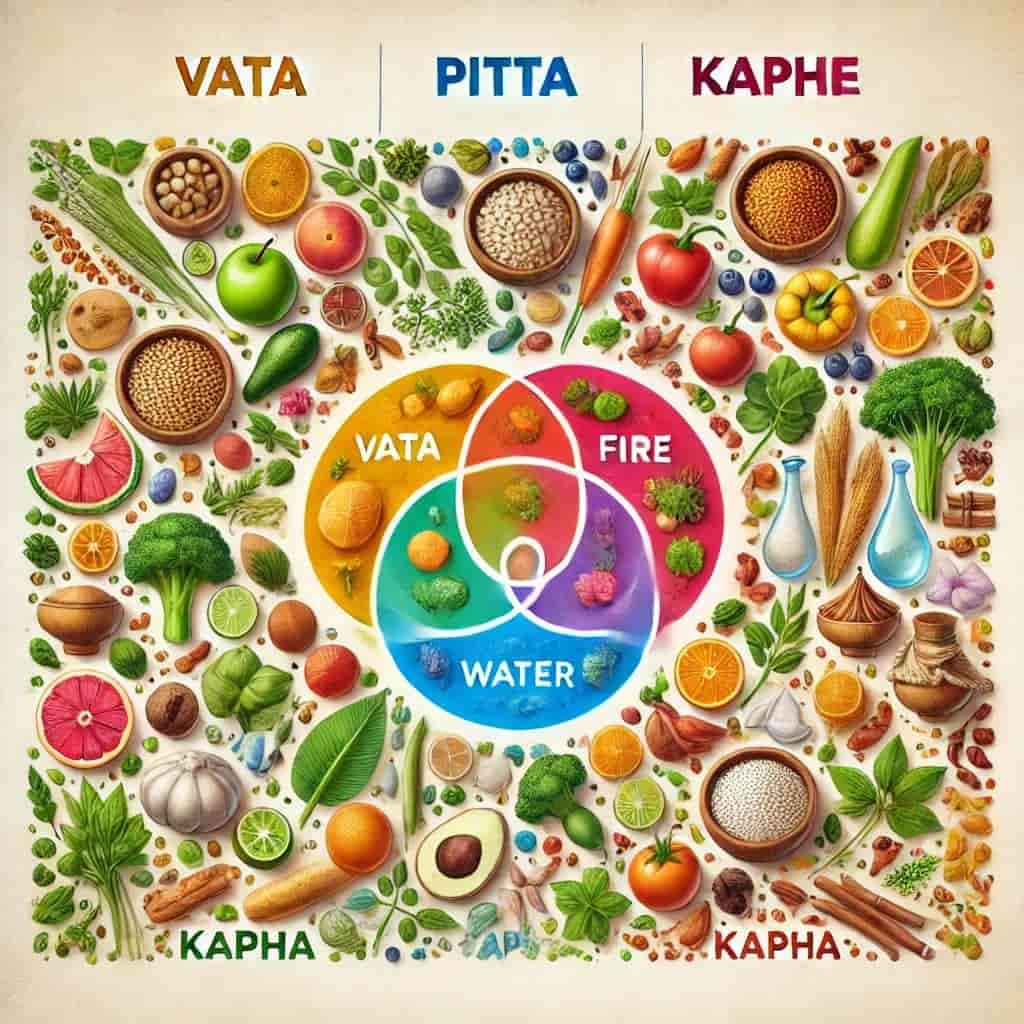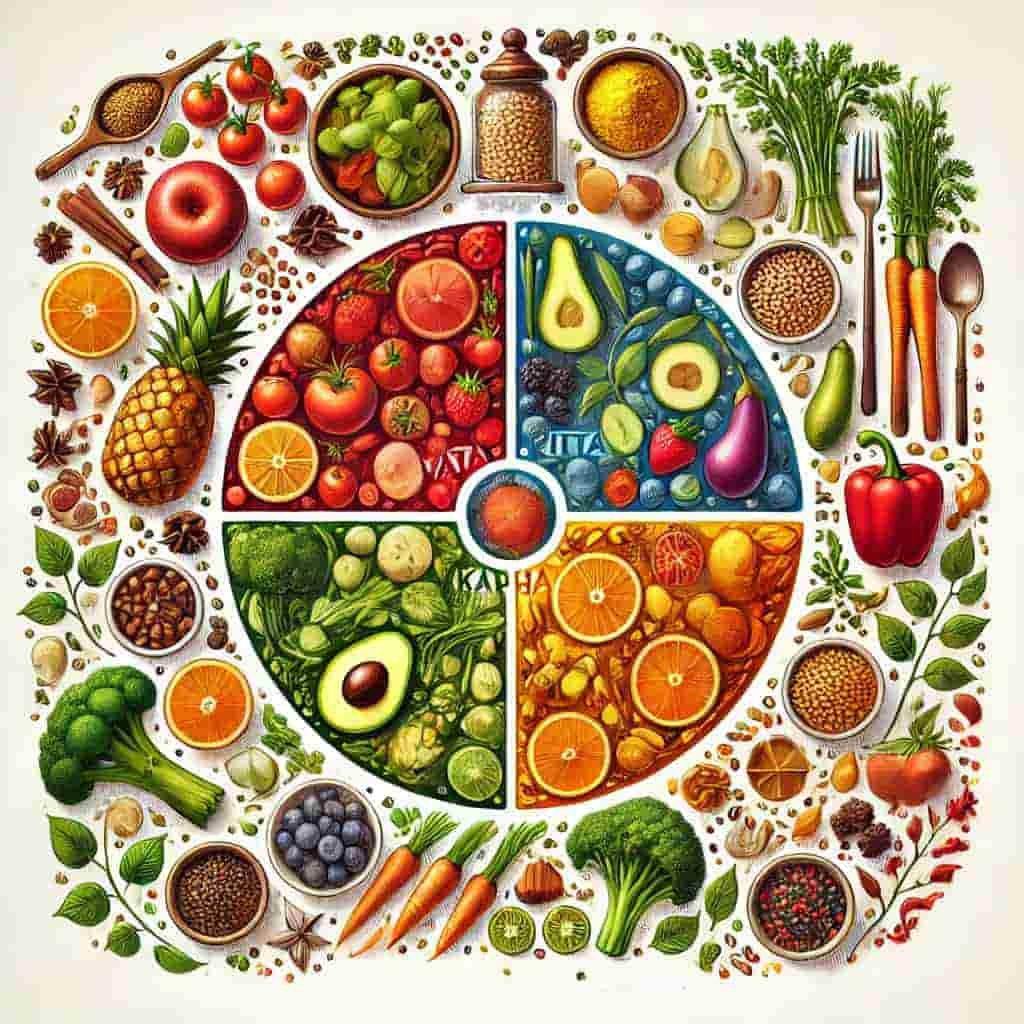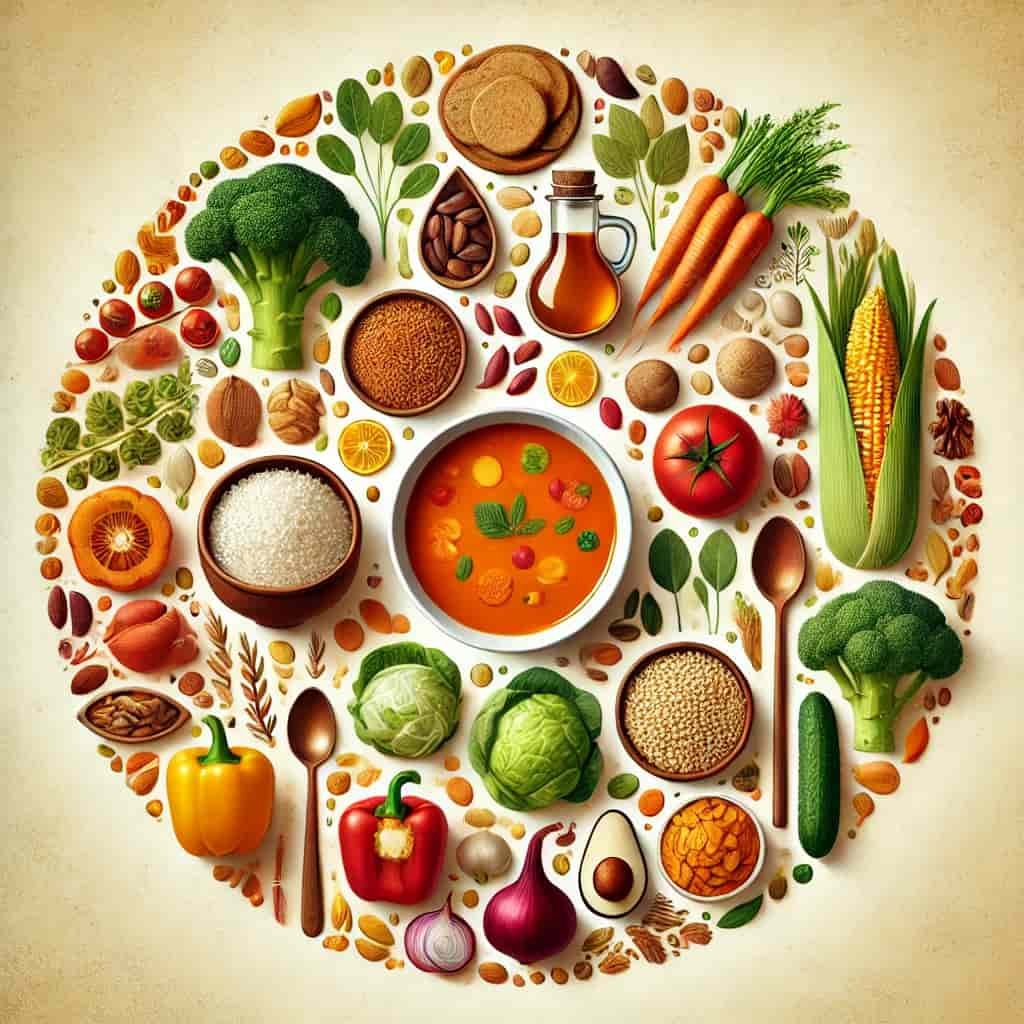Have you ever wondered if your diet could do more than just keep you physically healthy? What if it could help balance your mind, body, and spirit too? That’s the philosophy behind the Ayurvedic diet, a system of eating that’s been around for thousands of years.
Based on ancient Indian medicine, the Ayurvedic diet takes a holistic approach to health, aiming to create harmony between your internal and external environment. But how does it work, and could it be right for you? Let’s explore what the Ayurvedic diet entails, its core principles, and how it can improve your overall well-being.
What is the Ayurvedic Diet?
The Ayurvedic diet is rooted in Ayurveda, a system of traditional medicine that originated in India over 5,000 years ago. The word “Ayurveda” translates to “the science of life” and focuses on balancing the body’s energy to prevent disease and promote health.

In Ayurveda, every person is believed to have a unique constitution, or dosha, that determines their physical, emotional, and mental characteristics. The Ayurvedic diet is all about eating according to your dosha, with the goal of promoting balance and harmony within your body. Check out our review for MEVY Diet.
There are three main doshas in Ayurveda:
- Vata: Associated with air and space, vata governs movement, including breathing, blood flow, and the movement of thoughts.
- Pitta: Connected with fire and water, pitta controls digestion, metabolism, and energy production.
- Kapha: Linked to earth and water, kapha is responsible for structure, stability, and fluid balance.
By eating foods that complement your dosha, you can improve your overall health, prevent disease, and maintain a balanced lifestyle.
How the Ayurvedic Diet Works: Eating for Your Dosha
The core principle of the Ayurvedic diet is personalization. No two people are exactly alike, so the foods you eat should align with your dosha’s specific needs. Before starting the Ayurvedic diet, it’s important to determine your dominant dosha, which is typically done with the help of an Ayurvedic practitioner. However, many people have a combination of doshas, with one often being more dominant than the others.

Once you know your dosha, you can tailor your eating habits to promote balance. Let’s take a closer look at how the diet works for each dosha.
Vata Dosha
Vata types tend to be creative, energetic, and quick-thinking, but they can also become easily anxious or stressed. People with a dominant vata dosha may struggle with cold hands and feet, dry skin, and digestive issues like bloating or constipation. Check out our review for Paleo Diet.

To balance vata, the Ayurvedic diet recommends grounding, warming, and nourishing foods:
- Foods to favor: Warm, moist, and grounding foods like soups, stews, cooked vegetables, grains, and healthy fats. Sweet, sour, and salty tastes are best for vata types.
- Foods to limit: Cold, raw, or dry foods like salads, crackers, and cold drinks, which can aggravate vata and lead to imbalance.
Pitta Dosha
Pitta types are often driven, focused, and organized, with a strong metabolism and a sharp mind. However, they can be prone to anger, irritability, and digestive issues like acid reflux or ulcers. Check out our review for DASH Diet.

To cool and balance pitta, the diet emphasizes cooling, hydrating foods:
- Foods to favor: Sweet, bitter, and astringent tastes are ideal. Include cooling foods like cucumbers, melons, leafy greens, grains, and dairy.
- Foods to limit: Spicy, hot, and fried foods, as well as caffeine and alcohol, which can ignite pitta’s fiery nature.
Kapha Dosha
Kapha types are calm, steady, and nurturing, but they can also become lethargic or prone to weight gain if imbalanced. Kaphas may struggle with congestion, sluggish digestion, and water retention.

To stimulate kapha, the Ayurvedic diet suggests light, warm, and spicy foods:
- Foods to favor: Light, dry, and spicy foods like fresh vegetables, legumes, and warming spices like ginger and black pepper. Bitter, astringent, and pungent tastes are ideal for kapha types.
- Foods to limit: Heavy, oily, and sweet foods like dairy, fried foods, and sugar, which can weigh down kapha and increase lethargy.
Key Benefits of the Ayurvedic Diet
The Ayurvedic diet offers more than just physical health benefits. By focusing on your dosha, it aims to create a balance that can lead to improvements in both mental and emotional well-being.

Here are some of the most notable benefits:
- Improved Digestion: Ayurveda emphasizes eating foods that are easy to digest and suitable for your dosha, which can lead to better digestion and fewer issues like bloating, gas, or constipation.
- Increased Energy: Eating in tune with your body’s natural rhythms can help you maintain steady energy throughout the day without the crashes associated with processed or imbalanced foods.
- Enhanced Mental Clarity: The Ayurvedic diet promotes mental clarity and emotional balance by encouraging whole, natural foods that nourish both the body and mind.
- Personalized Health: Unlike one-size-fits-all diets, the Ayurvedic approach is highly personalized, focusing on the unique needs of your dosha and body type.
- Mind-Body Connection: The Ayurvedic diet fosters a deeper connection between what you eat and how you feel, helping you become more mindful of the foods that support your overall well-being.
Foods to Include in the Ayurvedic Diet
Here’s a table summarizing the ideal foods for each dosha:
| Dosha | Best Foods | Foods to Avoid |
|---|---|---|
| Vata | Warm, cooked grains, sweet fruits, nuts, dairy, ghee, warming spices | Raw vegetables, cold foods, dry foods, carbonated drinks |
| Pitta | Cooling fruits (melons, cucumbers), leafy greens, coconut oil, dairy, grains | Spicy foods, citrus fruits, tomatoes, fermented foods, caffeine |
| Kapha | Spicy, light vegetables, legumes, fresh fruits, whole grains | Heavy, oily foods, fried foods, dairy, sugar, cold foods |
Common Myths About the Ayurvedic Diet
There are a few misconceptions about the Ayurvedic diet that are worth clearing up:
- Myth: It’s too complicated: While it might seem overwhelming at first, the diet is highly adaptable and intuitive. Once you understand your dosha, the food guidelines become much easier to follow.
- Myth: You have to give up all your favorite foods: The Ayurvedic diet is not about deprivation. It’s about balance. You can still enjoy your favorite foods in moderation, as long as they don’t aggravate your dosha.
- Myth: It’s only for vegetarians: Although the Ayurvedic diet is primarily plant-based, it does include some animal products like dairy and meat, depending on your constitution and health goals.
Conclusion: Is the Ayurvedic Diet Right for You?
The Ayurvedic diet offers a unique and holistic approach to eating that goes beyond just physical health. By eating according to your dosha, you can support a more balanced, harmonious lifestyle that benefits both your mind and body. Check out our review for Gelatein Orange.
Whether you’re looking to improve digestion, boost energy, or simply eat more mindfully, the diet provides a personalized path to wellness. Start by identifying your dosha, and from there, tailor your eating habits to promote balance and well-being.
FAQs
How do I know my dosha?
Your dosha can be determined through an Ayurvedic assessment, either with a professional practitioner or by using online tools that help analyze your physical, emotional, and mental traits.
Can I follow the Ayurvedic diet if I’m vegan or vegetarian?
Yes! The Ayurvedic diet can easily be tailored to fit a vegan or vegetarian lifestyle by emphasizing plant-based foods that align with your dosha.
Is the Ayurvedic diet safe for everyone?
Generally, the Ayurvedic diet focuses on whole, natural foods, making it a safe and healthy option for most people. However, it’s always a good idea to consult with a healthcare professional before making major dietary changes, especially if you have pre-existing health conditions.
Does the Ayurvedic diet help with weight loss?
The diet can support weight management by promoting balance and healthy digestion, but it’s not designed as a weight loss diet. Its primary goal is to foster overall health and well-being.
Is it difficult to maintain an Ayurvedic diet?
While the Ayurvedic diet requires mindfulness, especially in terms of food preparation and choices, many find it to be sustainable once they understand the core principles. It’s all about finding a balance that works for your body.